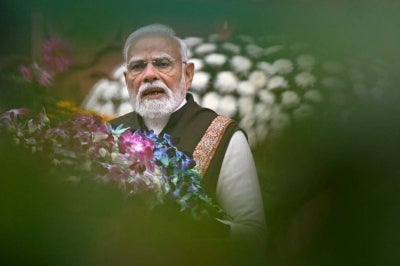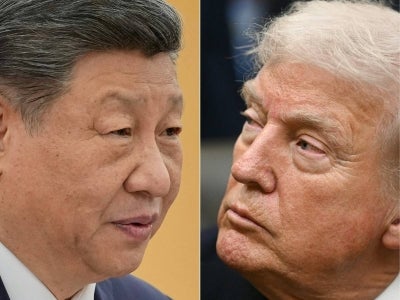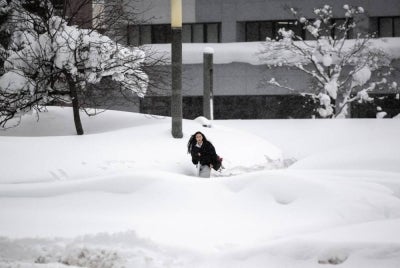Indonesia's Prabowo presidency: Five things to know
He was officially announced as the country's next president on Wednesday.

JAKARTA - Indonesian defence minister Prabowo Subianto was officially announced as the country's next president on Wednesday after storming to a first-round victory in his third try at the job.
Here is what we know so far about the fiery 72-year-old populist's plans for the archipelago nation, Southeast Asia's biggest economy, as he replaces popular outgoing leader Joko Widodo, commonly known as Jokowi.
- New capital -
Jokowi's successor has pledged to carry out his legacy move of relocating the capital from traffic-clogged and sinking Jakarta to Nusantara, a new city on Borneo island.
Nusantara, set to cost billions of dollars, is scheduled to begin operating as Indonesia's new political centre in August.
With construction ramping up this year, environmentalists warn building a metropolis will speed up deforestation in one of the world's largest and oldest stretches of tropical rainforest.
By 2045, the Indonesian government says Nusantara will host 1.9 million residents, importing a wave of human and industrial activity into the heart of Borneo.
Prabowo's administration will play a key role in the capital's first years of existence, helping develop it alongside the government agency charged with its management.
- Economic stability -
Prabowo's rise to the presidency came after pledges to carry on the economic policies of Jokowi, including a development drive.
Prabowo made it a campaign promise to turn Indonesia, a G20 member, into an "advanced and developed" economy.
To do that he has supported the resource nationalism of Jokowi, particularly in the nickel sector, where Jakarta has imposed export restrictions in a bid to become a key player in the electric vehicle supply chain.
Prabowo has promised free school meals for students and hinted at potential revenue reforms that suggest he could spend more freely than his predecessor, but his other campaign pledges indicate he will largely stay the course Jokowi has charted.
- Diplomatic balancing act -
Prabowo will have to balance relations with two global powers as the United States and China compete for regional influence.
He has committed himself to the long-standing non-aligned foreign policy that has allowed Indonesia to reap large investments from Beijing while maintaining ties with Washington.
But experts say the windfalls have left Jakarta increasingly dependent on China.
Prabowo was once on a US visa blacklist over alleged rights abuses under dictator Suharto in the late 1990s, but former president Donald Trump invited him to Washington as defence minister.
With Trump running for president again later this year, the pair could warm ties further.
- Jokowi legacy -
Incumbent President Jokowi was barred from running for a third term but remains hugely popular, with observers saying he used his position to install his eldest son Gibran Rakabuming Raka as Prabowo's vice president.
The influence Jokowi will retain under a Prabowo administration remains unclear, with analysts unsure how pliant his defence minister will be when he takes power in October.
To that end, Jokowi has tried to please his former rival Prabowo since polls closed, notably making him an honorary four-star general last month.
So the relationship between Prabowo, Gibran and Jokowi -- whose gamble to keep his influence may or may not backfire -- could be significant to the future course of Indonesia's emerging economy and young democracy.
- Unpredictable 'grandpa' -
The man set to lead Indonesia is known for his unpredictability despite cultivating a new image on social media as a "cuddly grandpa".
For instance, Prabowo surprised Kyiv in mid-2023 when he proposed a plan to end the Ukraine war, apparently without having consulted Jokowi.
When he lost the presidency to Jokowi in 2014, he also claimed victory and launched a legal challenge. Prabowo claimed victory once more after losing to Jokowi again in 2019 and stoked riots in Jakarta.
This month he called democracy "messy" and "costly", raising concerns among observers about the potential for democratic gains to be rolled back.
As he settles into the presidency, it will become clearer how closely he will stick to the model of Jokowi or deviate from that to forge his own path, observers say. - AFP
Download Sinar Daily application.Click Here!













